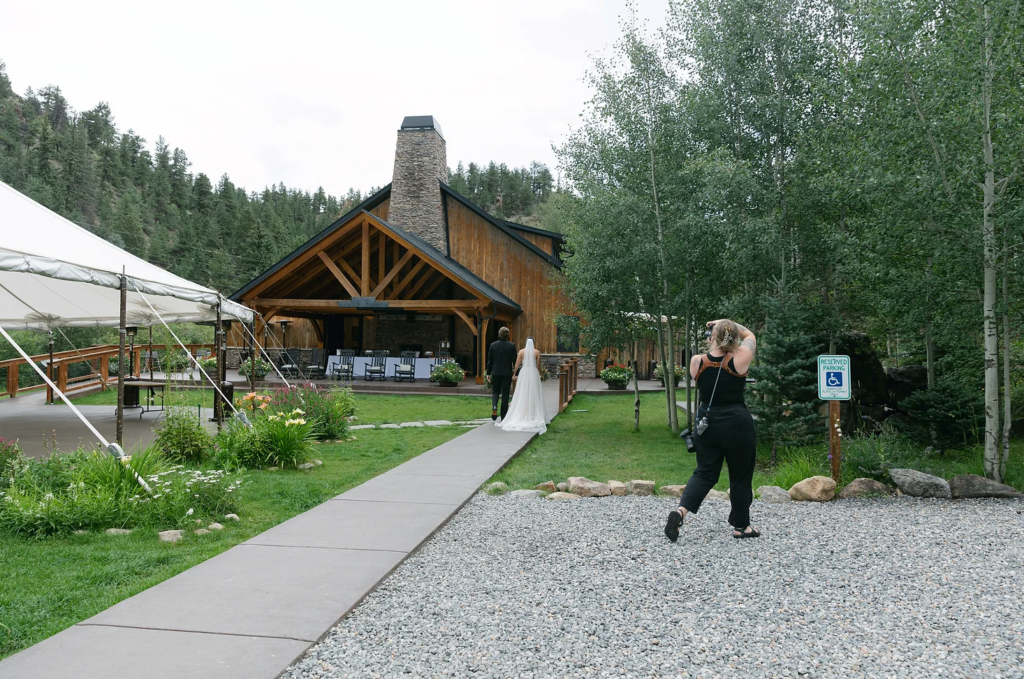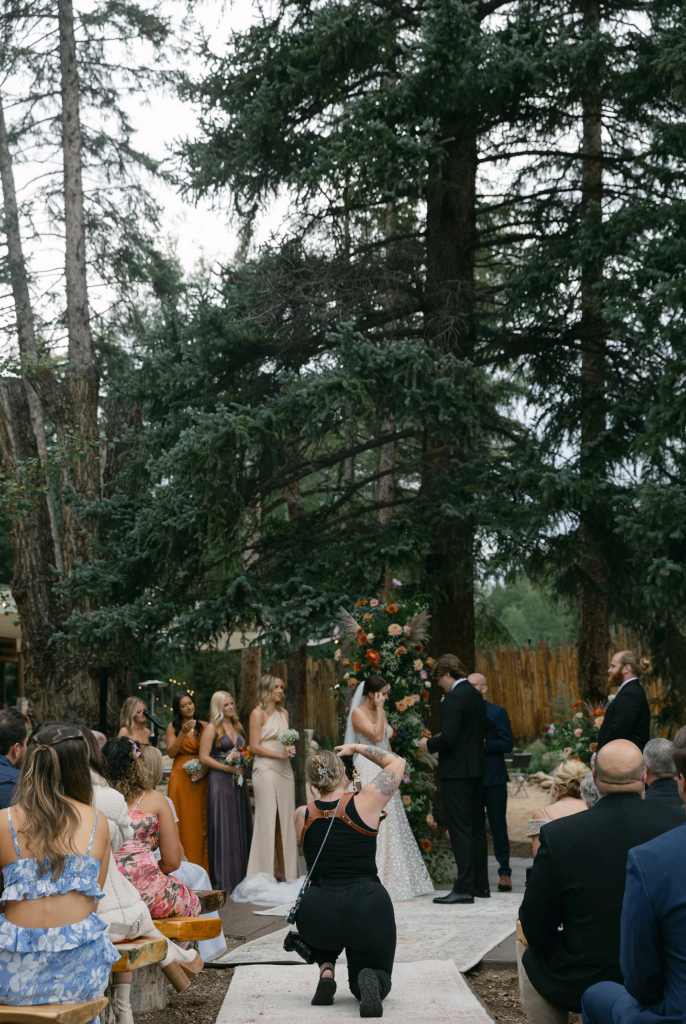How to be the Best Second + Associate Shooter
FILED IN: EDUCATION
As a wedding photographer (or aspiring wedding photographer), starting out second shooting for other photographers in the industry is one of the best things you can do. It’s incredibly beneficial to help you learn how to tackle a wedding day while also building a portfolio to show future clients. If you’re a bit more seasoned in the wedding game, you’ve maybe even associate shot for another wedding photographer as well.
After many years in the wedding industry, we’ve done and love both (yup, we still second shoot all the time for other photographers, too!). Though starting out, we would’ve loved to have a how-to guide on how to be the best and most beneficial second/associate shooters – which is while we’ve complied a list of our favorite tips and tricks.
First off, it’s important to know the difference between the two:
Second Photographer – A second photographer is a photographer who is hired on as a another photographer under the lead to help with coverage on a wedding day.
Associate Photographer – An associate photographer is a photographer who shoots weddings or sessions on behalf of another experienced photographer, but the images are edited by the head photographer in order to give them the look and feel of their own work.
Below, we break down our top tips and tricks to be the best second and associate shooters you can be.

Second Shooting Tips (before and during the wedding).
TIP #1 – Sign a contract
Even if you’re second shooting for a friend, always make sure there is a contract in place. Read and ask questions if you have them to be sure you’re clearly understanding what is expected of you.
TIP #2 – Prepare
It’s always important to ask the lead photographer what photos they want you to focus on throughout the day. While they will likely go over this with you prior – taking the initiative and asking them first will be huge. Pro Tip: you can also ask to see a full gallery from the lead to make sure you fully understand their shooting style.
TIP #3 – Communicate
COMMUNICATION IS KEY (in everything lol). Your lead photographer has a lot on their plate day of, so communicating with them to know exactly when and where you need to be will be helpful. Pro Tip: Send them a quick text to let them know you’re on your way, that will be super comforting to the lead.
TIP #4 – Be on time
Be on time, or even better be 10 min early. It’s incredibly professional if when the timeframe you’re supposed to be there starts, you’re ready to go.
TIP #5 – Show up professionally
Treat this wedding as if it were your own, be kind and respectful during the entire day. Ask the lead prior what the dress code for this wedding is – just because you wear one thing to your weddings – doesn’t mean thats how this lead dresses for their weddings.
TIP #6 – You are there to help the lead photographer
While being a second shooter can provide great portfolios – it is important to remember you are hired on to help the lead photographer first and foremost. This is not just about you getting photos for your portfolio. We like to think of it as you are the lead photographers assistant for the day. Whatever they need help with (regardless of if that is fixing the dress, grabbing water for the bride, or taking photos of the groomsmen while they are taking photos of the bridesmaids) you are their second set of hands.
TIP #7 – Sync the time and white balance to the lead photographer
Syncing your time on your cameras will help with the organizing process in Lightroom. Same with syncing your white balance (by either using auto or Kelvin), it’ll help the editing process go smoothly – especially if you’re using two different camera brands.
TIP #8 – Add Variety
The last thing the lead photographer wants is to upload your photos and see that you’ve taken basically the same photos all day that they have. Add variety to the gallery, stand in a different location, use a different lens, take a different approach.
TIP #9 -Don’t overshoot
We know it can be exciting, but the same thing as a lead not wanting a duplicate gallery, the lead also doesn’t want another 2000+ photos from their second that they have to look through.
TIP #10 -Keep an eye on the timeline
While the lead photographer and planner will likely also be doing this, having a third eye on it is helpful, if you see that things are starting to get behind, let the lead photographer know.
TIP #11 -Pay attention to where the lead photographer is
This is especially important during the ceremony. Your lead will likely discuss where they would like you to be for the ceremony, but always make sure you’re aware of where they’re at /shooting and make sure you’re out of the frame.
TIP #12 -Help with the family formals
We both ask our couples to give us a list of family members for family formals – helping the lead by calling out names and combinations is HUGE and helps that portion of the day go by like a breeze.
TIP #13 – Be honest about your experience level.
Some weddings require a second to have just as much experience as the lead photographer and others don’t. So be sure to be honest with the lead by letting them know your experience level.
TIP #14 – Always be prepared to take over
One of the main benefits of having a second shooter, is if something were to happen to you or your cameras (or something happens prior to the wedding day) – there’s a backup there to take over. Always be prepared for this to happen.
TIP #15 -Don’t pretend to be the lead photographer
I know this sounds like common sense, but don’t pretend to be the lead for the day. The lead photographer has done a lot of work with this couple prior to the wedding day. Be clear to anyone who asks that you are the second/associate shooter for the day.
TIP #16 -Do not self promote
This goes right along with tip #15. Don’t self promote, you are working under the lead if anyone asks. Don’t hand out your own business cards or Instagram usernames.
TIP #17 – Don’t pose the couple unless the lead photographer says it’s okay to
This is dependent on the lead photographer, but don’t try and pose the couple unless they say it is okay to.
TIP #18 – Don’t show people photos from the back of your camera
While the couple knows there is a second photographer there, it is best to leave it up to the lead photographer to determine what photos from the second are added into the gallery. If you show someone an image from the back of your camera – they will expect to see it in the gallery and it may not make the final cut from the lead.
TIP #19 – Get BTS of the lead photographer
It’s always incredibly helpful to have BTS shots of us working at weddings. Be a gem and take some BTS shots of the lead photographer throughout the day – they will love you for it.
TIP #20 – Know how the photo delivery is going to work
Be sure to talk about this prior. Are you going to use one of the leads memory cards, or do you have a plan to transfer photos after the fact.

Associate Shooting Tips (before and during the wedding).
While a lot of the tips from second shooting apply to associate shooting as well, there’s a few main ones that are important to remember.
TIP #1 – Sign a contract
Even if you’re second shooting for a friend, always make sure there is a contract in place. Read and ask questions if you have them to be sure you’re clearly understanding what is expected of you.
TIP #2 – Treat it as if it were your own
Be respectful and treat the couple + guests as if they are your own on the wedding day.
TIP #3 – Prepare
This is the same as being a second shooter, but make sure you are prepared for the wedding day. While they will likely go over this with you prior – taking the initiative and asking them first will be huge. Ask to see a full gallery from the lead to make sure you fully understand their shooting style. Look up the venue, maybe even visit the
venue prior. Be sure to ask what they normally wear to a wedding day and match that.
TIP #4 -Don’t pretend to be the lead photographer
I know this sounds like common sense, but don’t pretend to be the lead for the day. The lead photographer has done a lot of work with this couple prior to the wedding day (even if you are associate shooting). Be clear to anyone who asks that you are the associate shooter for the day.
TIP #5 -Do not self promote
This goes right along with tip #3, but don’t self promote, you are working under the lead if anyone asks. Don’t hand out your own business cards or Instagram usernames.
Tips for after the wedding
TIP #1 -Get the lead the photos on time
Make sure to read the contract and talk to the lead to see when/how to deliver your photos.
TIP #2 -Talk about how you can use the photos prior
It is incredibly important to talk to the lead photographer prior to the wedding to know their expectations on how you can use the photos after the fact.
TIP #3 -Wait to post the photos until they say you can
Most of the time, they lead will allow you to post the photos after they have delivered the full gallery. Be respectful and wait.
TIP #4 -Always tag the lead photographer
If they allow you to post the photos, regardless of if you second shot or associate shot, be sure to tag the photographer (however they have asked you too, likely in the caption) saying that you second shot or associate shot the wedding.
TIP #5 -Don’t tag the couple or the vendors
This is dependent on the lead photographer, but most of the time you’re not allowed to tag the couple or any of the vendors.
TIP #6 -Ask the photographer if you’re allowed to blog the gallery first
Some photographers don’t allow their seconds/associates to blog the gallery, so if you plan on doing so, be sure to ask if you’re allowed to.
TIP #7 -Do NOT deliver your photos to the couple or vendors
Remember, it was not YOUR wedding so under no circumstances should you deliver the photos to the couple or the vendors. If they by chance reach out to you – you can politely say that you’re not comfortable and they can ask the lead for the photos.
TIP #8 -Do NOT submit the gallery for publication
This is essentially the same as tip #7, remember this is not your wedding. It’s not for you to submit to publications.
TIP #9 -Don’t follow the couple
Every photographer feels differently about this, but just to be safe we never follow the couple without talking to the lad about it first.
While every photographer handles having a second photographer and an associate photographer differently, these tips are pretty universal and will help you become the photographer that every photographer wants to hire.
Here for community, not competition?
See where we are roaming next!
X
D & B